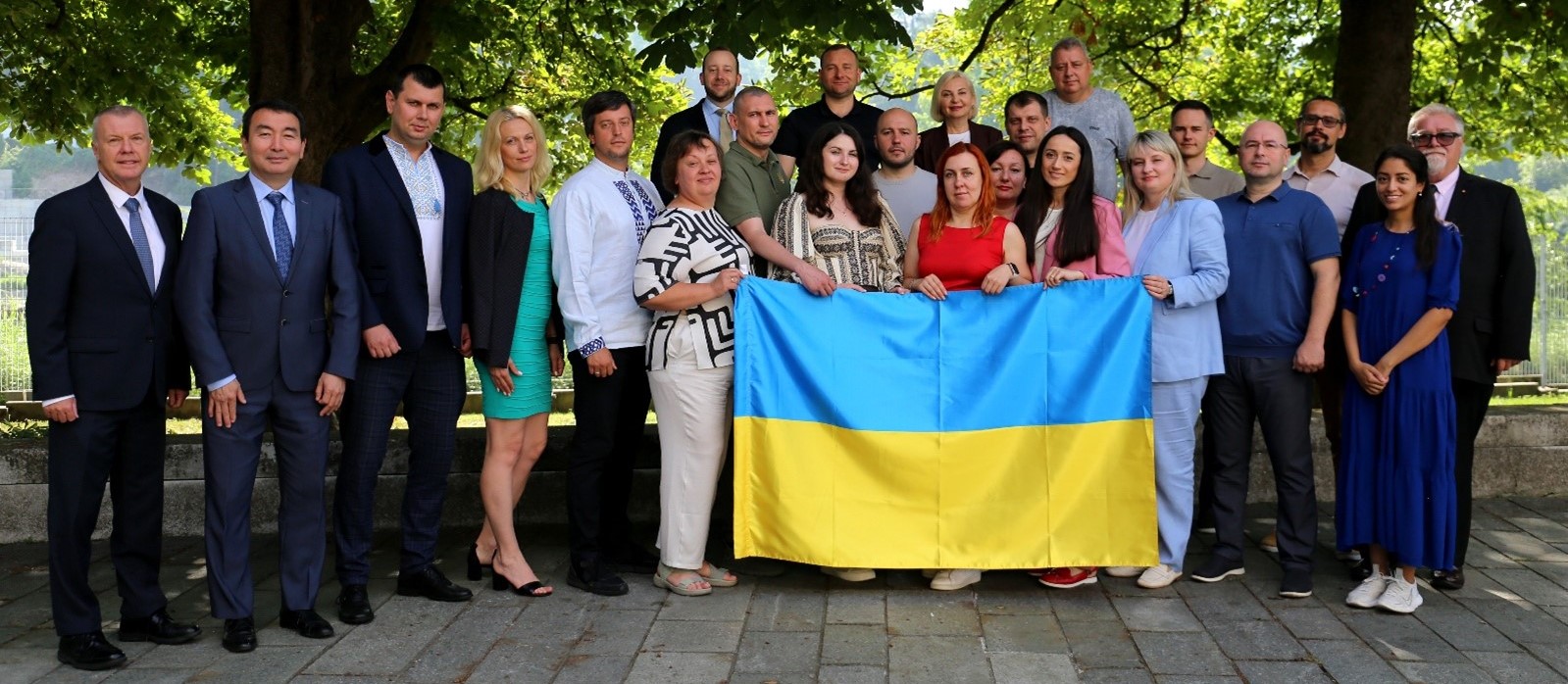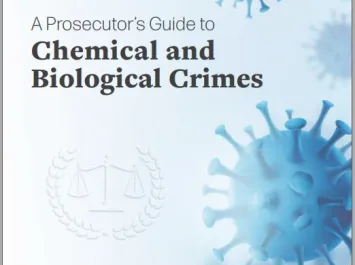In the event of intentional or accidental incidents involving chemical, biological, radiological, and nuclear (CBRN) materials, countries must be equipped with key capabilities to ensure an appropriate legal response. These include robust legal frameworks, specialized knowledge and laboratory resources, CBRN forensics tools and training, effective interagency collaboration, and regular practical exercises, such as tabletop simulations and drills.
In response to requests from partner countries, and under the umbrella of the European Union CBRN Risk Mitigation Centres of Excellence (EU CBRN CoE) Initiative, comprehensive guidebooks on investigating and prosecuting CBRN-related crimes were published in 2022 and 2024. These manuals were developed in close partnership with international bodies to align with global standards for the safe and secure management of CBRN materials.
A major step forward came in 2024 with the launch of an innovative initiative titled “From CBRN Crime Scene to Courtroom.” This groundbreaking project, fully funded by the European Commission’s Service for Foreign Policy Instruments (FPI), marks a pivotal advancement in the field of CBRN forensics and judicial preparedness. Implemented under the EU CBRN CoE Initiative, it aims to close the gap between field-level response and legal prosecution in CBRN-related incidents.
Central to the project is a six-month-long, scenario-based training programme designed to integrate prosecutors, criminal justice and law enforcement officers, forensic experts, and legal professionals into a cohesive, well-prepared response network. This structured training package enhances both operational and legal capabilities of the beneficiary countries in addressing CBRN risks and threats.
The training package consists of five interconnected, comprehensive theoretical and practical modules:
• Tabletop Exercise – Focuses on strategic understanding of CBRN risks, interagency coordination, and gap identification.
• CBRN Criminalisation Workshop – Examines international legal frameworks, forming the basis for effective criminal prosecution.
• Building a Case for Prosecution training – Teaches how to convert forensic evidence into legally sound cases.
• Mock Trial / Moot Court – Offers practical courtroom experience using adapted national legal systems.
• Train-the-Trainer (TTT) – Develops a cadre of national instructors capable of perpetuating the training within local institutions.
A key strength of the programme lies in its long-term vision. From the outset, national legal and judicial training institutions have been actively involved to ensure that the knowledge and skills developed are not only transferred but institutionalised. In Ukraine, for example, over 30 tailored training modules are currently being incorporated into official education programmes, laying the groundwork for lasting expertise within the country’s legal and security infrastructure.
As an early leader in the project, Ukraine — working in close coordination with Moldova — played a central role during the pilot phase. The country plans to adapt and deliver the selected training modules on its own territory, tailored to national needs. The process concluded with a Train-the-Trainer module, where 16 Ukrainian experts were fully prepared to take ownership of the training delivery. A concluding three-day session provided hands-on application of the material, after which the training resources were formally handed over to Ukraine’s national institutions for continued use.
From 23 to 25 June 2025, the Train-the-Trainer course took place at UNICRI’s headquarters in Turin, Italy. The programme combined two days of instructional theory with a practical teaching component, allowing participants to put their new skills into action. The course focused on effective adult education strategies, including the use of visual communication, body language, and dynamic teaching methods. By the end of the training, all 16 Ukrainian participants had earned certification, equipping them to take the lead in national-level training initiatives.

The next phase of the initiative will broaden its reach, targeting regional legal and investigative professionals with advanced, role-specific training. Scheduled to run from 2025 to 2027, this expanded effort will deliver a series of expert-led courses designed to train prosecutors, investigators, judges, law enforcement officers and criminal justice authorities in different regions of Ukraine. These training courses will further strengthen the intersection of legal and forensic capabilities, ensuring a more coordinated and effective national response to CBRN-related threats.
The specialized CBRN training provided to Ukraine comes at a critical time, enhancing the country’s ability to respond swiftly and effectively amid ongoing conflict and direct aggression. By strengthening the skills of law enforcement, forensic experts, and legal professionals, Ukraine is better equipped to investigate and prosecute incidents involving hazardous materials, which pose an increased risk in wartime. This capacity not only helps protect public safety but also supports accountability and justice, reinforcing Ukraine’s resilience in the face of complex security challenges.
The “From CBRN Crime Scene to Courtroom” initiative goes far beyond capacity building - it establishes a long-term, expert-driven framework for addressing high-risk incidents. By bridging the gap between technical forensics and judicial authorities, and by strengthening the capabilities of national institutions, the EU and its partners are fostering a globally connected, resilient system prepared to tackle the evolving challenges presented by CBRN risks and threats.



